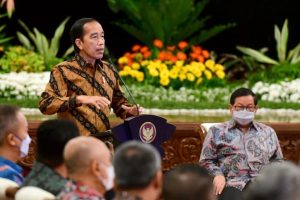Earlier this month, the World Trade Organization (WTO) ruled that 2018 tariffs the United States imposed on aluminum and steel were in violation of WTO rules. The U.S., by all appearances, could not care less. According to Bloomberg, U.S. Trade Representative (USTR) spokesperson Adam Hodge rejected the ruling, stating that the U.S. “will not cede decision-making over its essential security to WTO panels.” Paul Krugman, writing in the New York Times, penned a pair of op-eds titled “Why America is Getting Tough on Trade” and “Is This the End of Peace Through Trade?” Krugman’s work was influential in shaping America’s approach to free trade in the 1990s, so it is noteworthy that he is questioning whether that era has come to an end.
It certainly seems like change is in the air. Countries around the world are resorting to what we might call economic statecraft, the use of policy tools such as tariffs and export bans to intervene in markets in the pursuit of national strategic goals. It seems like unimpeded free trade is being rolled back as countries dig in and prioritize their own domestic objectives over other considerations. That the United States is not even attempting to disguise its prioritization of domestic policy goals above WTO rules speaks to how much the international economic landscape has shifted.
We are seeing this attitude reflected more and more in Southeast Asia as well. Indonesia is probably the key mover there. Historically, Indonesia has shown a willingness to buck global conventions on free trade and resort to economic nationalism when it can and when it benefits the national interest. This tendency has intensified in recent months, with the use of blanket export bans on coal and palm oil when the government was concerned about high global prices leading to domestic shortages.
More recently, the WTO ruled that Indonesia’s use of export bans on unprocessed nickel ore were contrary to the General Agreement on Tariffs and Trade (GATT). Nickel is a scarce commodity that is increasingly in demand, as it is in an important input in battery production. Indonesia, which has the world’s largest supply of nickel, has been denying global markets of unprocessed ore in an attempt to force more investment in higher value-added downstream activities like smelting, and eventually battery and EV manufacturing. The WTO panel ruled that this violated Indonesia’s commitments under the GATT.
Indonesia came out quickly with a response that might just as easily have come from the USTR. President Jokowi said that they would be appealing the ruling and stated: “If we are scared of being sued, and we step back, we will not be a developed country.” Indonesia has been consistent with its rhetoric in this regard: the nickel is in Indonesian soil, and the government wants to extract as much value from it as it can, whether that conforms with free market principles or not. If that means roiling markets and rejecting free trade, that is perfectly fine. What he is saying, in effect, is that free trade is all well and good, as long as it does not come at the expense of Indonesia’s own economic development and domestic policy goals. And these sentiments are being echoed throughout the global economy, including by the United States.
So committed is Indonesia to maximizing its return on nickel, the Minister of Investment recently suggested nickel producing countries should create an OPEC-style cartel. This idea seems highly unlikely to have any legs, but it does show how deeply this economic nationalist impulse has penetrated into the upper echelons of Indonesian policy-making, and how little credence is being paid to WTO rules that might constraint Indonesia’s economic development.
And not without reason. Indonesia has leverage, and if the United States can decide to ignore global conventions on free trade when it’s in their national interest, then why shouldn’t countries like Indonesia behave in the same way? I expect we will see a more aggressive form of economic nationalism assert itself throughout the region and the world in the coming years as countries like Indonesia increasingly look to capture more of the value in a global economic system that has perhaps not always served their interests to the fullest.

































